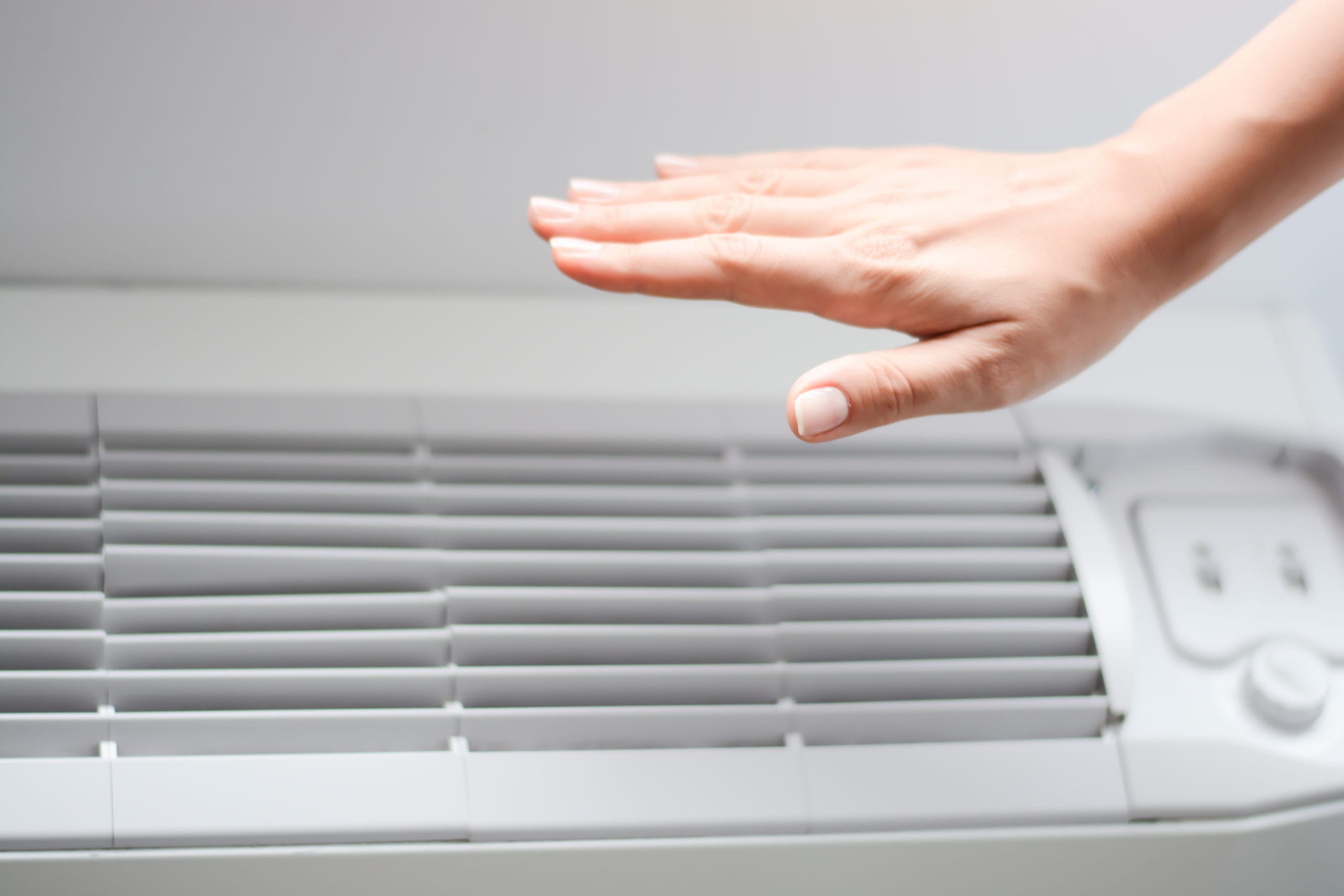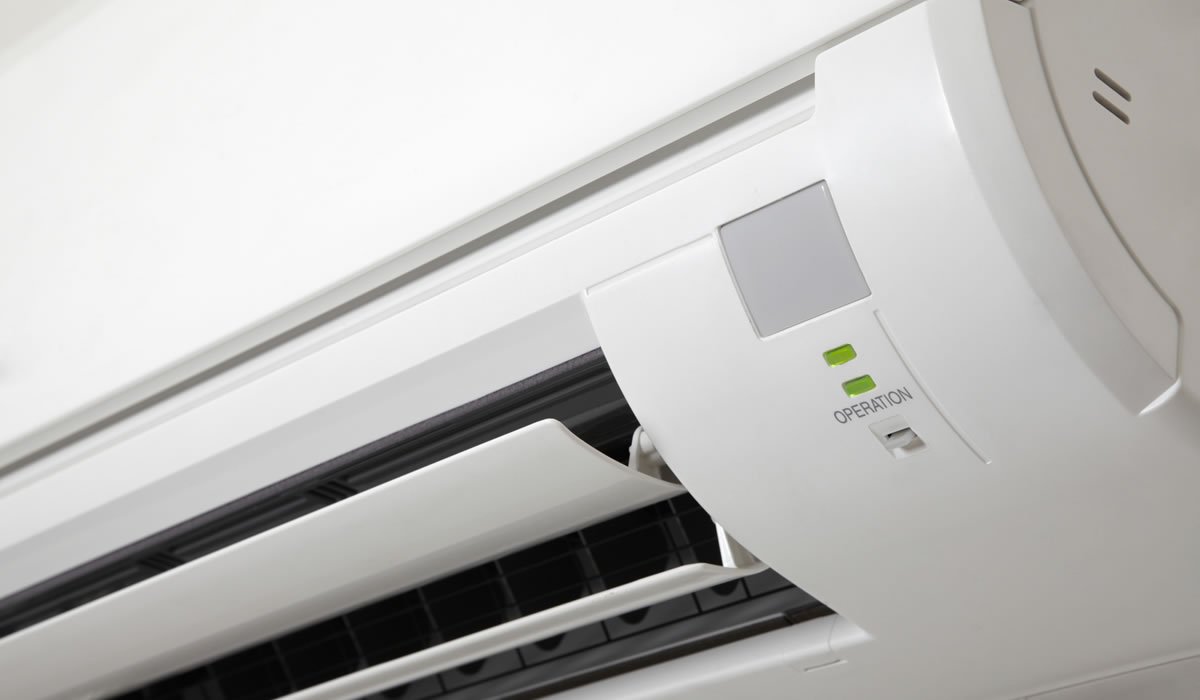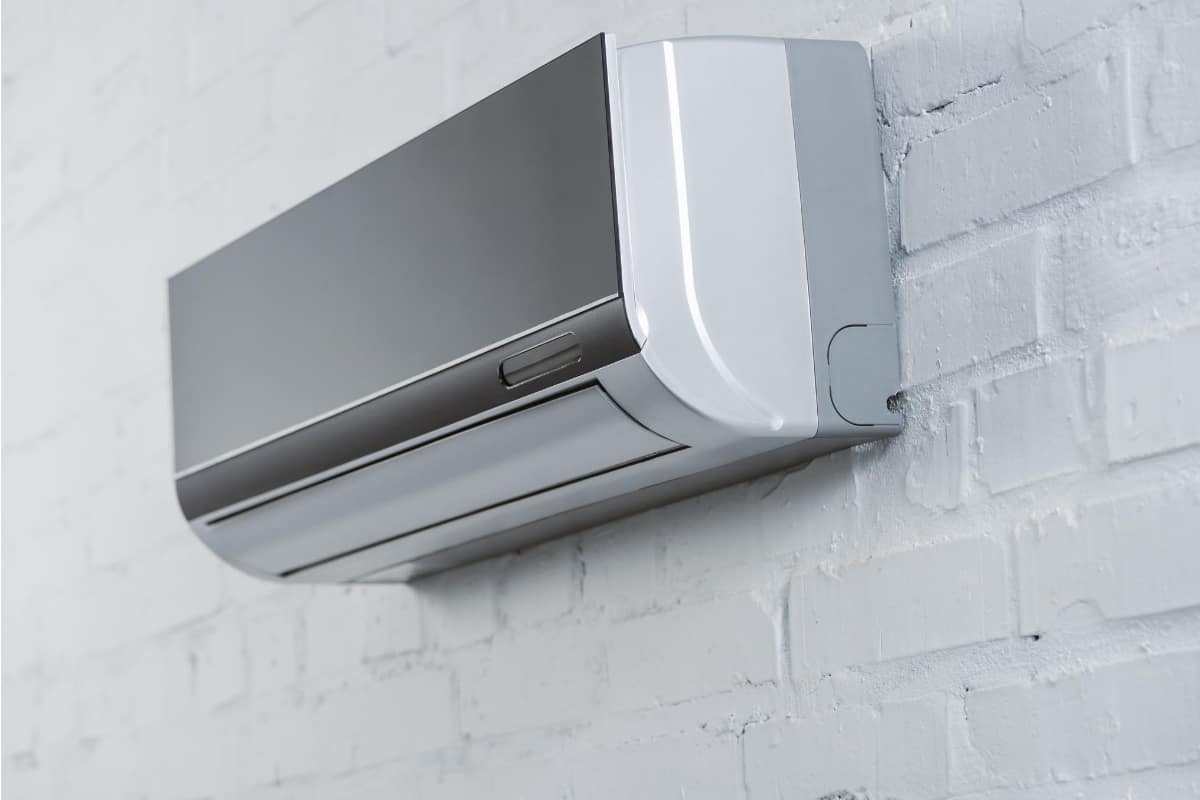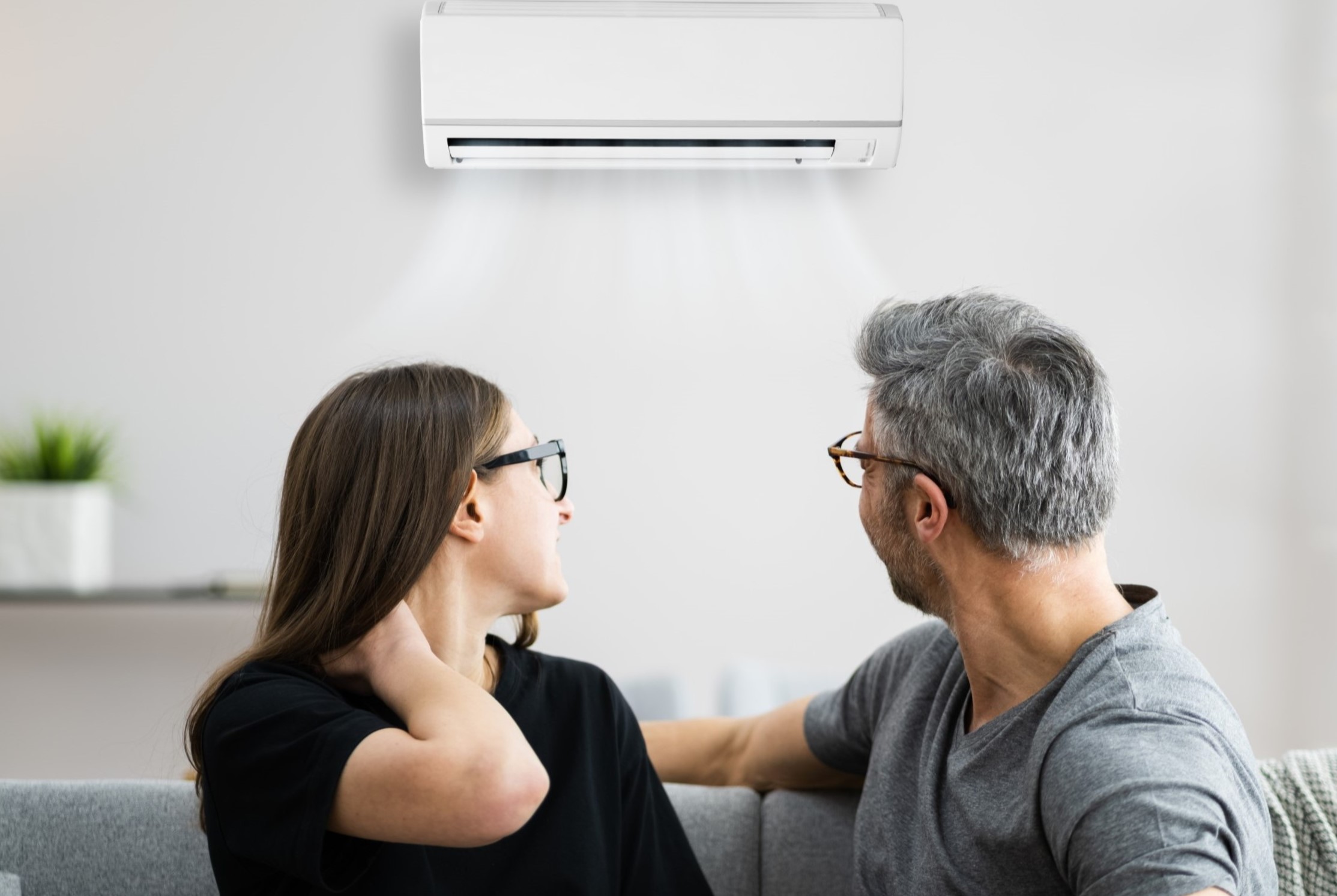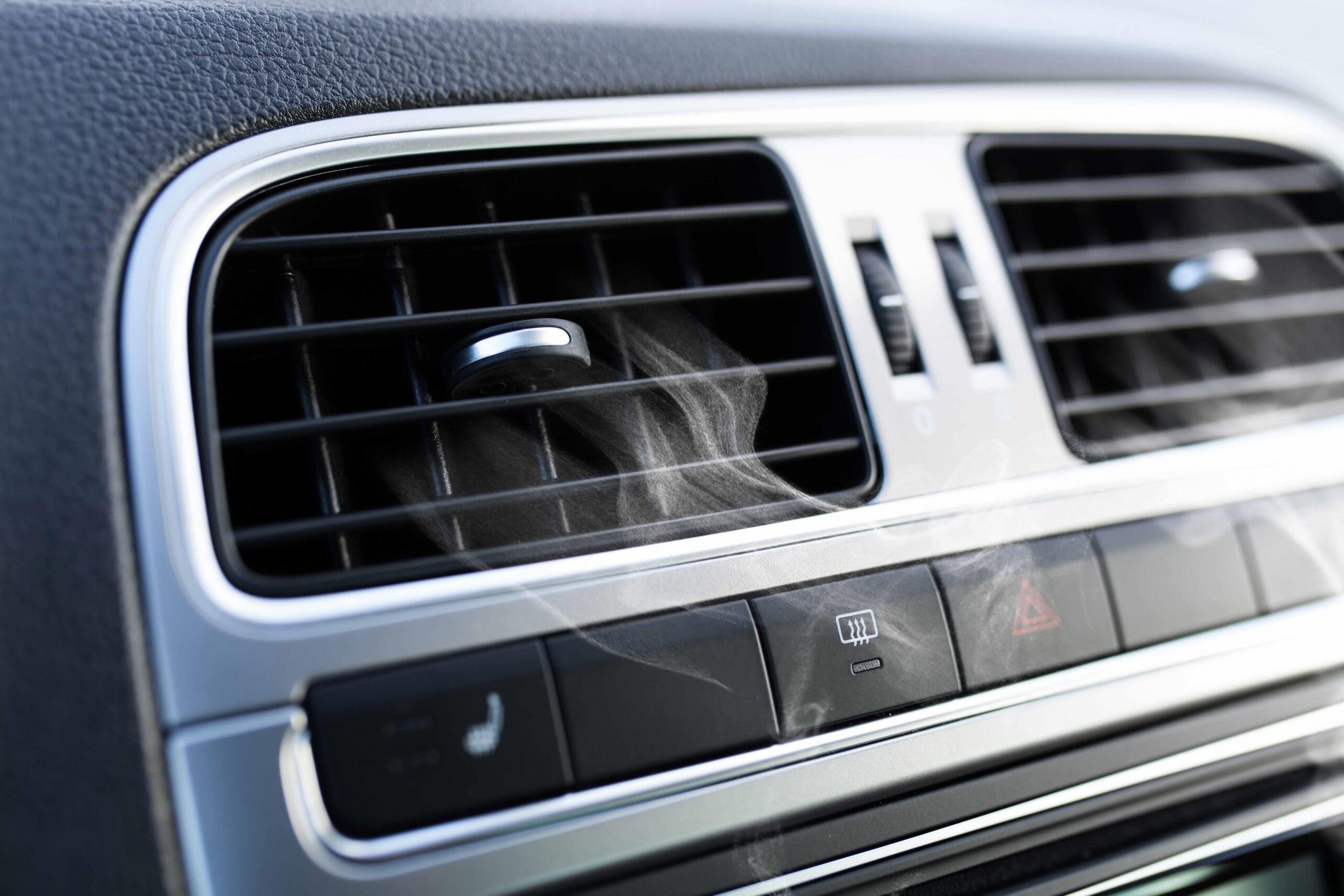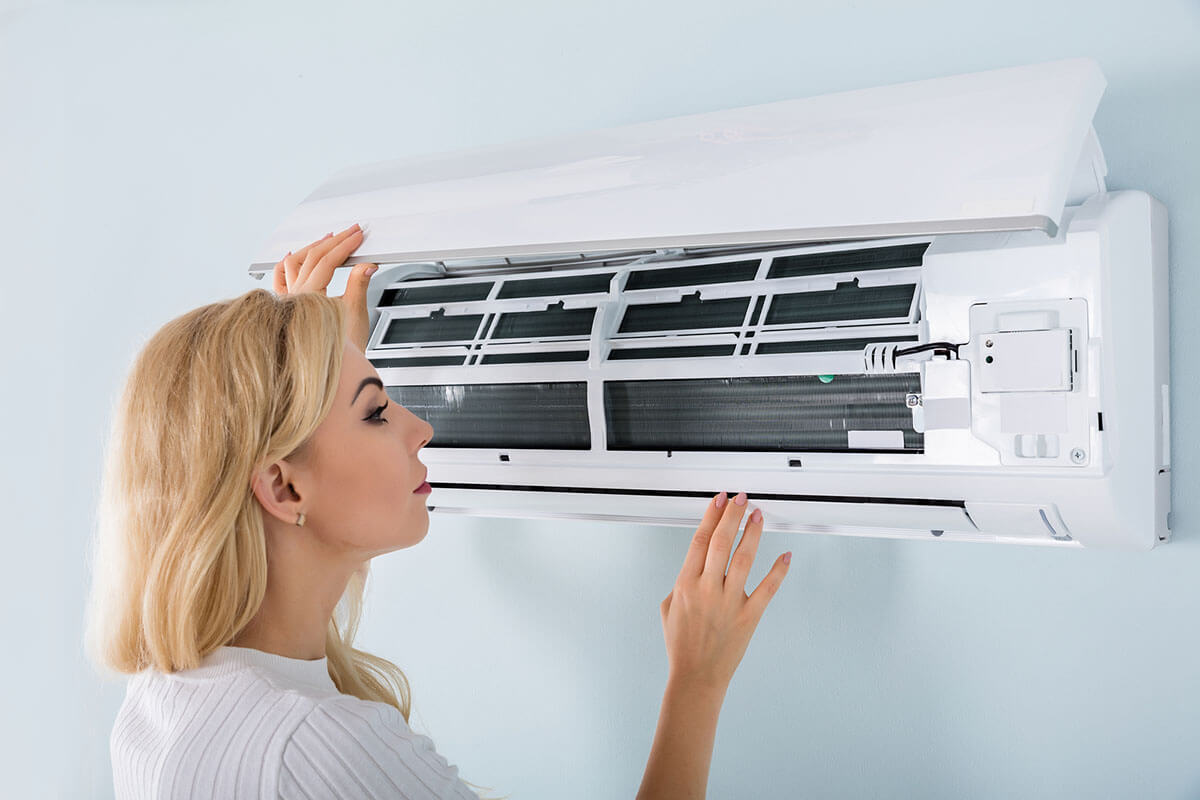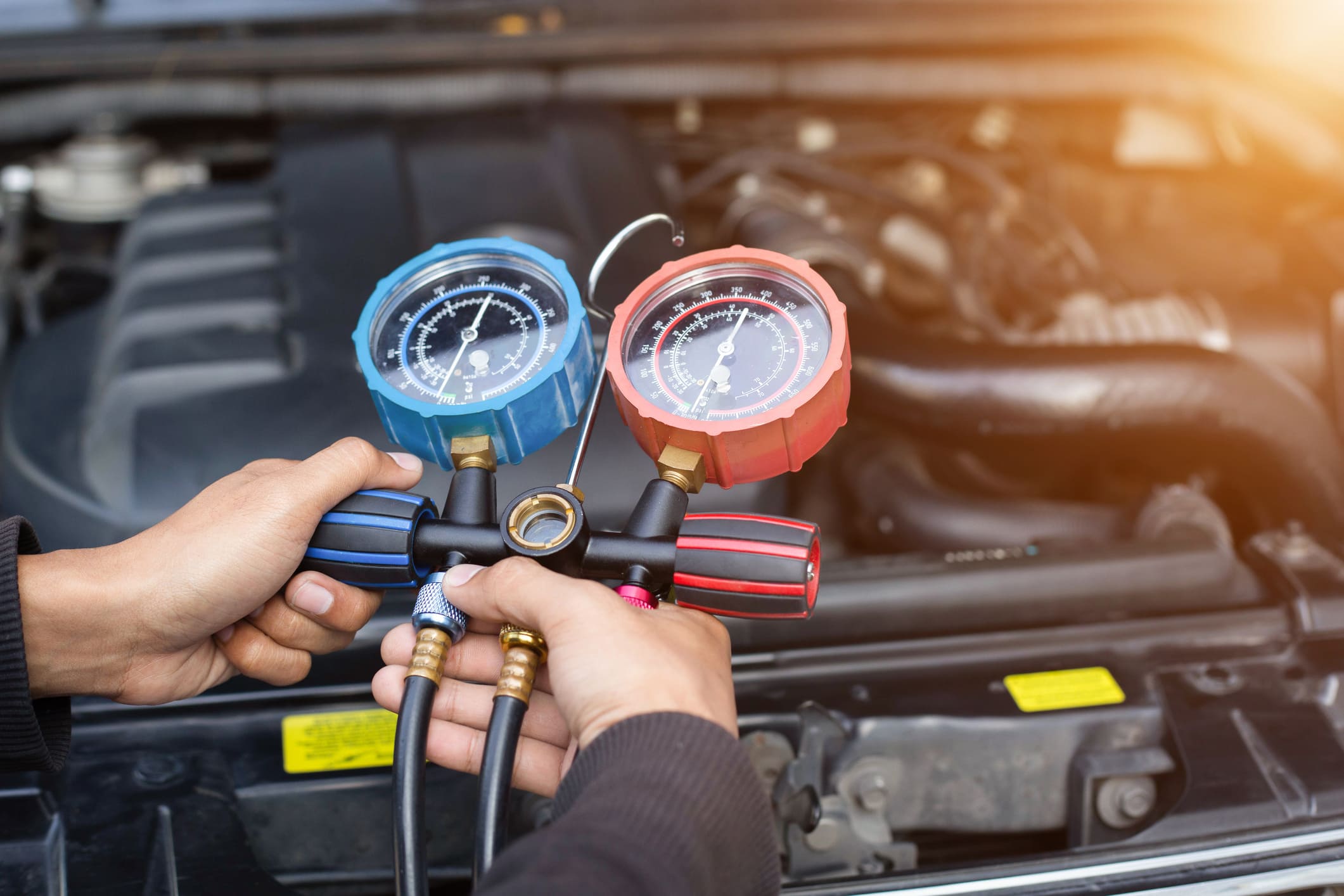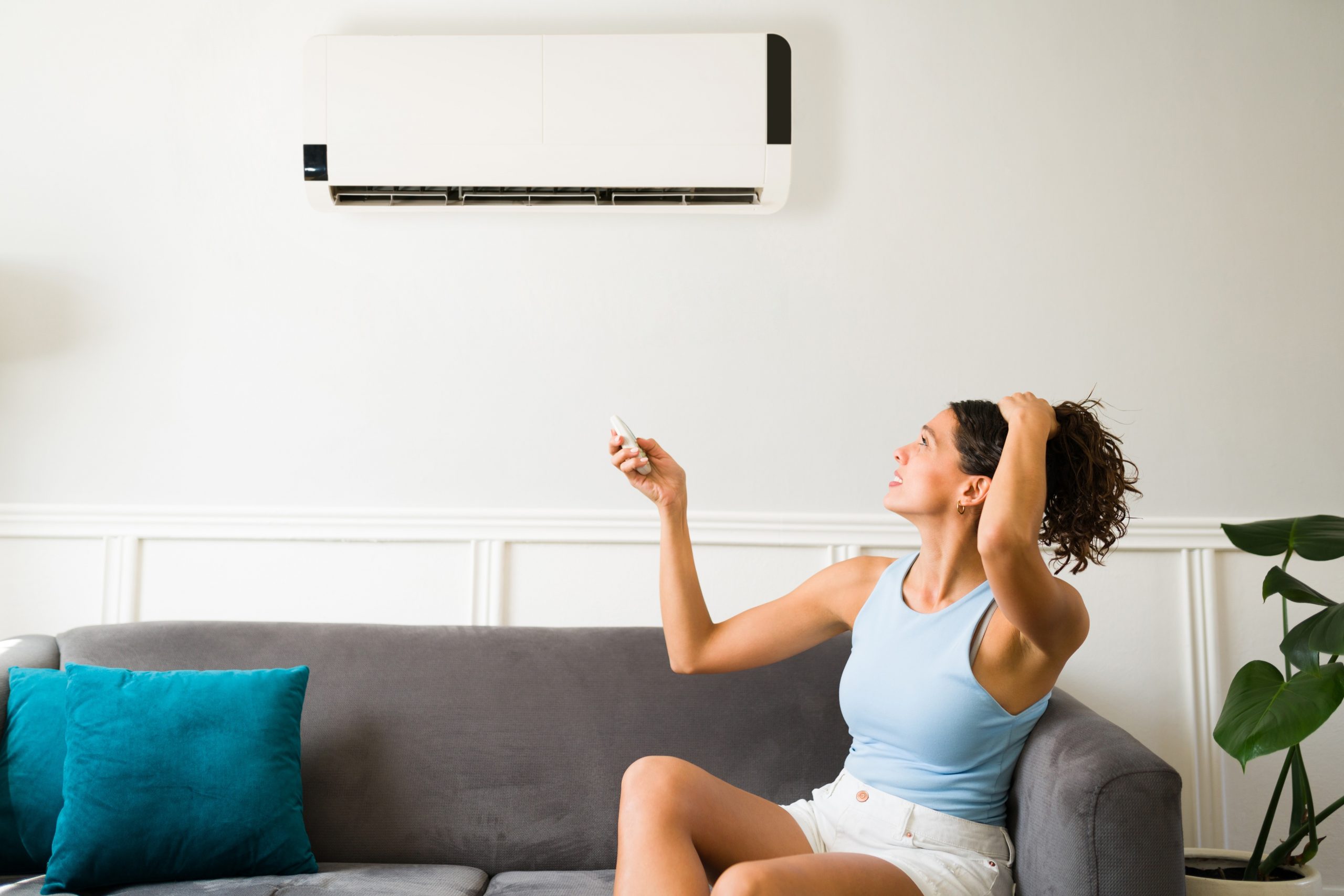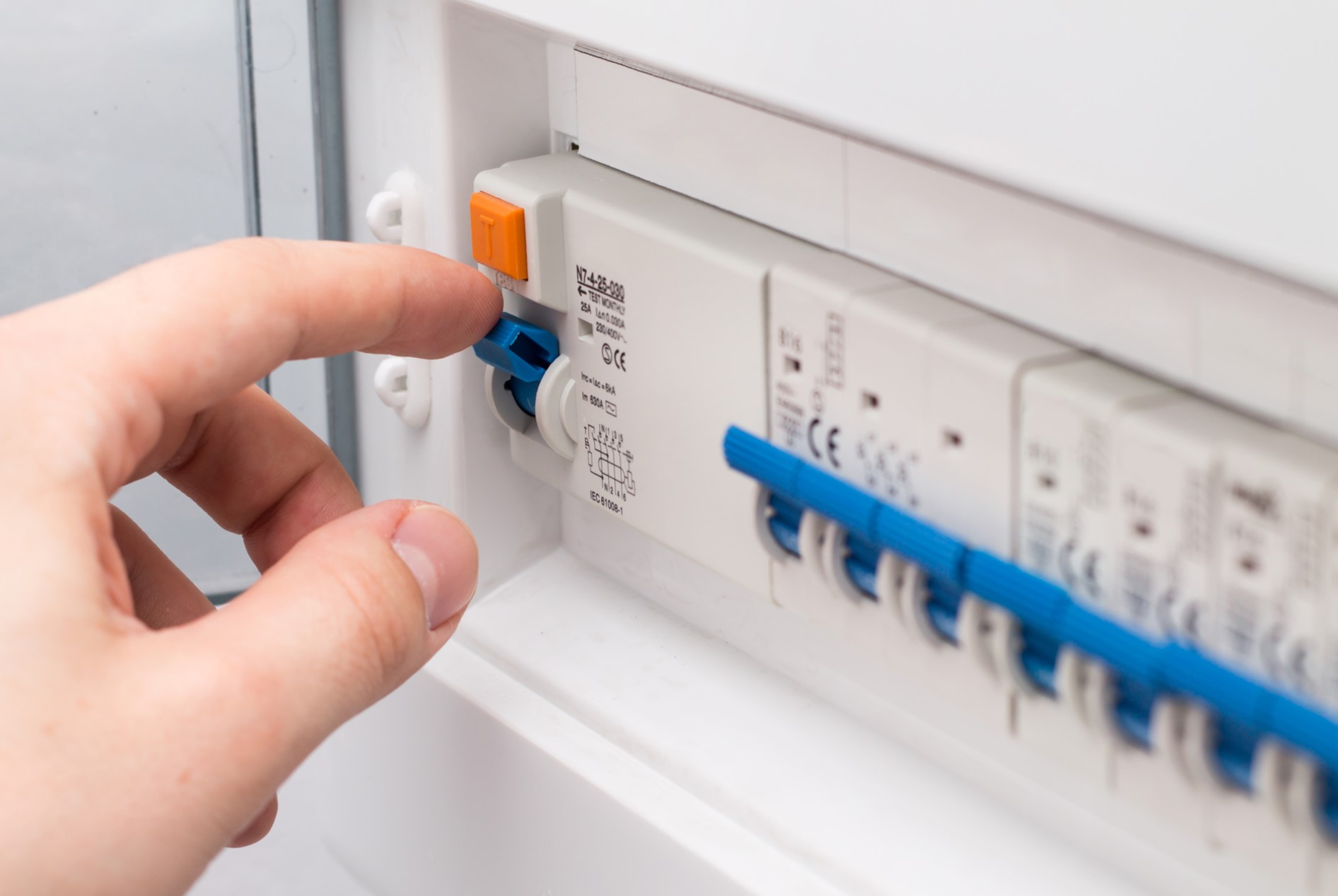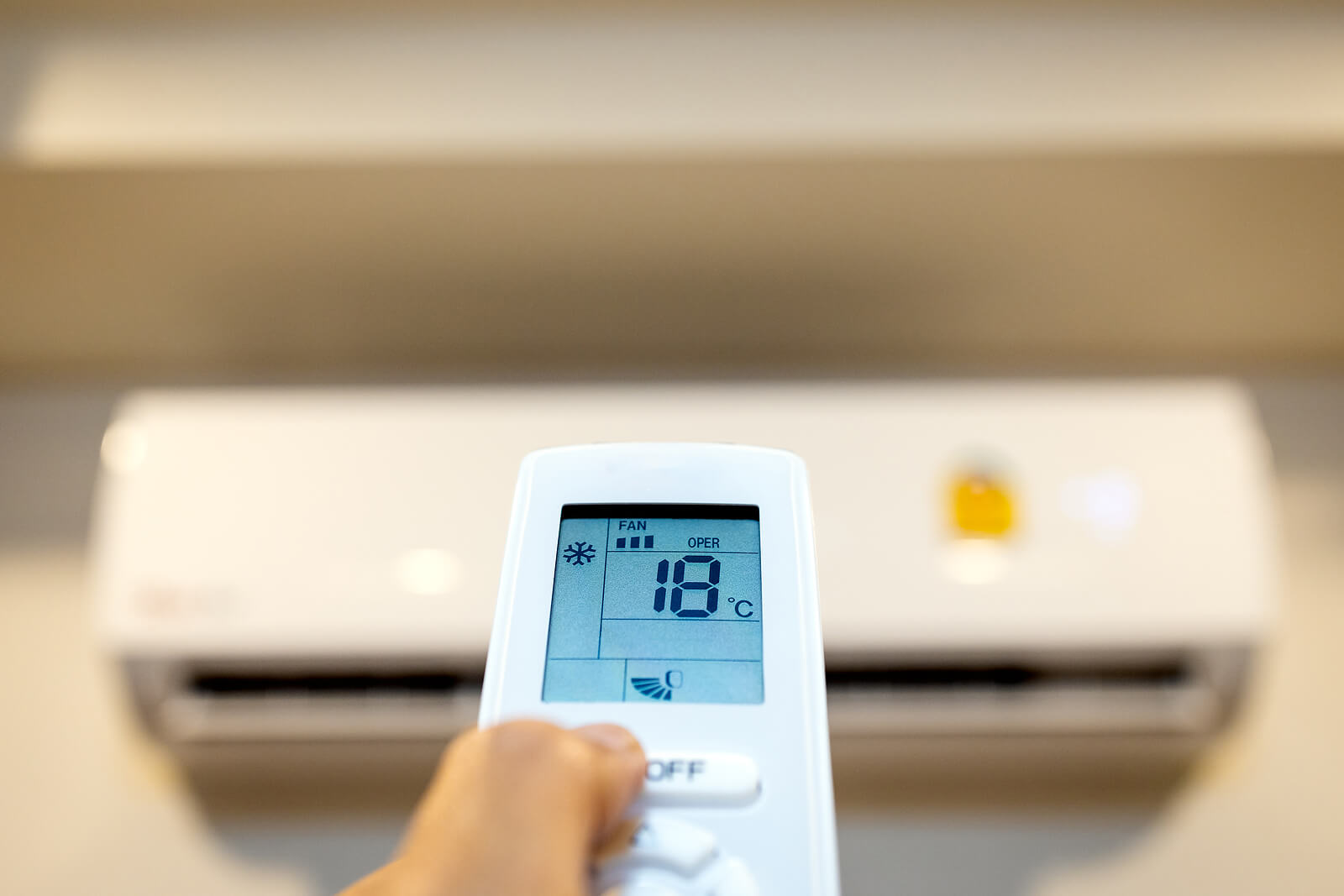Home>Home Maintenance>Why Is My Air Conditioner Crackling
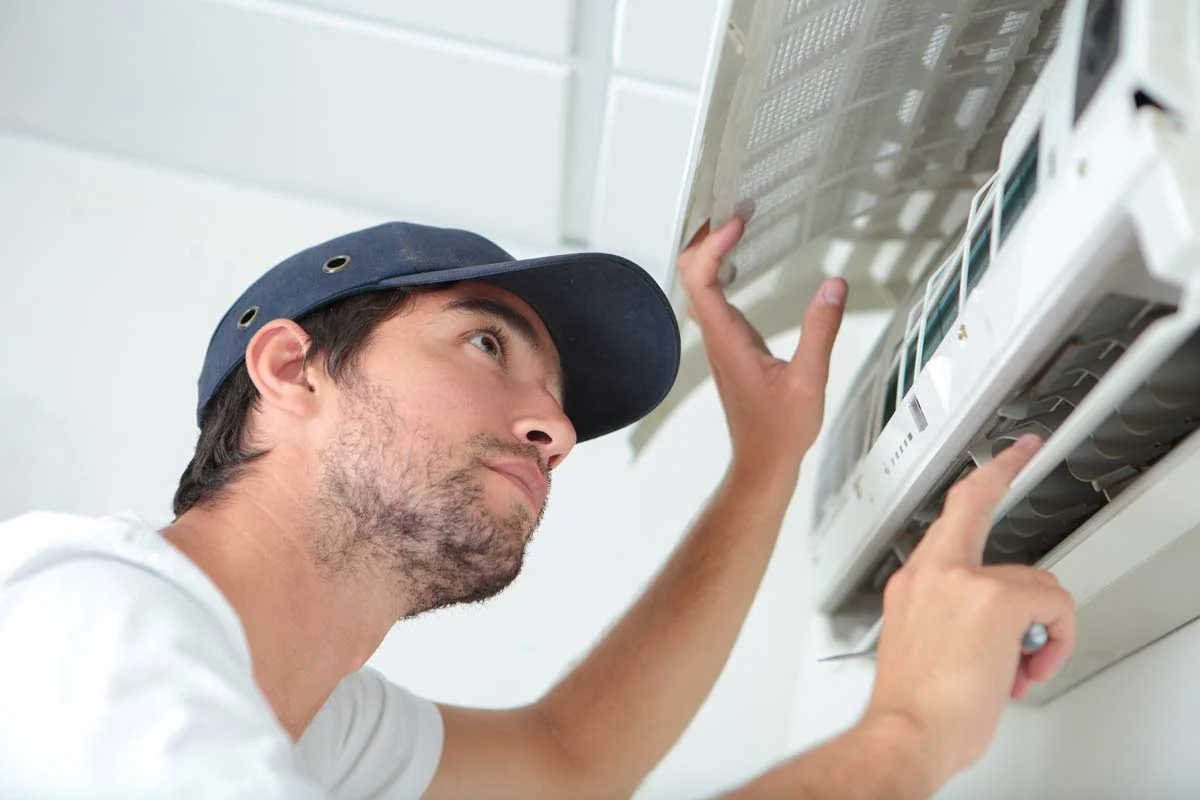

Home Maintenance
Why Is My Air Conditioner Crackling
Modified: March 7, 2024
Discover why your air conditioner is crackling and learn how to fix it with our expert home maintenance tips. Keep your AC running smoothly!
(Many of the links in this article redirect to a specific reviewed product. Your purchase of these products through affiliate links helps to generate commission for Storables.com, at no extra cost. Learn more)
Introduction
Welcome to the world of home maintenance! As a homeowner, you know that keeping your house in tip-top shape is crucial to ensuring its longevity and comfort. One important aspect of home maintenance is maintaining and troubleshooting your air conditioner. An air conditioner not only provides relief from the scorching heat but also helps to ensure optimal indoor air quality.
While operating your air conditioner, you may have noticed various noises, some of which are normal and expected. However, there are certain sounds that can be cause for concern. One such noise is a crackling sound coming from your air conditioner. This strange noise can be quite worrisome, leaving you wondering what might be causing it and how to fix it.
In this article, we will explore the possible causes of crackling noises in an air conditioner and provide you with solutions to help address the issue. By the end, you will have a better understanding of why your air conditioner is crackling and what steps you can take to resolve the problem.
So, let’s dive in and discover the secrets behind the crackling sounds in your air conditioner!
Key Takeaways:
- Keep your air conditioner running smoothly by regularly cleaning or replacing air filters to prevent crackling noises and ensure optimal performance.
- Address potential issues such as loose electrical connections, debris in the AC unit, and refrigerant problems to fix crackling noises in your air conditioner and enjoy a quieter home.
Read more: Why Is My Space Heater Crackling?
Understanding Air Conditioner Noises
Before we delve into the specific causes of crackling noises in an air conditioner, it’s important to have a basic understanding of the different types of noises that your air conditioner can make. These noises can vary in intensity and duration, and their origin may be attributed to various components of your AC system.
1. Rattling: This noise is often caused by loose or damaged parts within the air conditioner. It can be a result of loose screws, fan blades hitting debris, or loose ductwork.
2. Buzzing: Buzzing noises can indicate a problem with the electrical connections or a faulty motor. It’s important to address this noise promptly to prevent further damage.
3. Clicking: Clicking sounds are typically heard when your air conditioner turns on or off. However, if you hear continuous clicking or rapid clicking, it may signal an issue with the electrical control board or relay.
4. Squealing: A high-pitched squealing noise often indicates a problem with the fan motor or the blower wheel. It may be due to a worn-out belt or lack of lubrication.
5. Hissing: Hissing noises are usually associated with refrigerant leaks. If you notice a hissing sound, it’s important to address it immediately, as refrigerant leaks can impact the efficiency and performance of your air conditioner.
Now that you have a general understanding of the different types of noises an air conditioner can make, let’s focus on one specific noise: the crackling sound. This noise is distinct and can be quite alarming to homeowners. So, let’s explore the potential causes of crackling noises in an air conditioner.
Possible Causes of Crackling Noises in an Air Conditioner
When it comes to crackling noises in an air conditioner, there can be several factors at play. Let’s take a closer look at some of the possible causes and how they may contribute to the crackling sound.
- Dirty Air Filters: One common cause of crackling noises is dirty air filters. Over time, dust, dirt, and debris can accumulate on the filters, restricting airflow and causing the air conditioner to work harder. This strain on the system can result in crackling or popping noises.
- Loose or Faulty Electrical Connections: Another culprit behind crackling noises is loose or faulty electrical connections. When the electrical connections in your air conditioner become loose, it can cause arcing or sparks, creating a crackling sound. This issue should be addressed promptly to prevent electrical hazards.
- Debris in the AC Unit: If debris such as leaves, twigs, or small branches find their way into the AC unit, they can interfere with the operation of the fan blades or other components. As a result, the air conditioner may emit crackling noises as it attempts to function with the obstruction.
- Refrigerant Issues: Insufficient or leaking refrigerant can lead to crackling noises. When the refrigerant level is low, the air conditioner may struggle to cool your home efficiently, causing stress on the system and resulting in unusual noises.
- Faulty Compressor or Fan Motor: A malfunctioning compressor or fan motor can also be responsible for crackling sounds. If these components are worn out or damaged, they may produce noises as they try to operate effectively.
- Expansion and Contraction Noises: As the air conditioner cycles on and off, the metal components in the system expand and contract with temperature changes. This expansion and contraction can sometimes create crackling sounds, especially if the system is older or not properly maintained.
- Ductwork Issues: Damaged or poorly insulated ductwork can contribute to crackling noises. Air leaks, loose connections, or loose insulation in the ducts can cause air turbulence, leading to crackling or rattling sounds as the air flows through the system.
- Frost Accumulation: In some cases, frost accumulation on the evaporator coil can cause crackling noises. This can happen if there are issues with the defrost cycle or if the air conditioner is not properly sized for the space it is cooling.
Now that we have identified the potential causes of crackling noises in an air conditioner, the next step is to diagnose the specific source of the noise in your system. This will allow you to take the necessary steps to fix the issue and restore your air conditioner to its optimal performance.
Dirty Air Filters
One of the most common causes of crackling noises in an air conditioner is dirty air filters. The air filters in your AC system serve a crucial role in maintaining the quality of the air in your home. They work by capturing dust, dirt, pollen, and other airborne particles, preventing them from circulating through your living space.
Over time, as the air filters collect more and more debris, they can become clogged, restricting the airflow through the system. When the airflow is restricted, the air conditioner has to work harder to push air through the filters and into your home. This strain on the system can result in strange noises, including crackling or popping sounds.
To determine if dirty air filters are the cause of the crackling noises in your air conditioner, you can follow these steps:
- Turn off your air conditioner.
- Locate the air filters. They are typically located in the return air vents or inside the air handler unit.
- Remove the filters and examine them for dirt and debris.
- If the filters appear dirty, it’s time to clean or replace them. If they are disposable, it’s a good idea to replace them with new filters. If they are reusable, you can clean them using a vacuum cleaner or by rinsing them with water.
- Once the filters are clean or replaced, reinstall them back into the air conditioner.
- Turn on the air conditioner and listen for any changes in the noise level. If the crackling noise was caused by dirty air filters, you should notice a reduction or elimination of the noise.
Regularly cleaning or replacing your air filters is an essential part of air conditioner maintenance. It not only helps to improve the overall performance and energy efficiency of your AC system but also ensures that the air circulating in your home is clean and healthy.
However, if you have cleaned or replaced the air filters and the crackling noise persists, it’s time to explore other possible causes, such as loose or faulty electrical connections.
Loose or Faulty Electrical Connections
Another common cause of crackling noises in an air conditioner is loose or faulty electrical connections. Your air conditioner relies on a complex electrical system to operate efficiently. If any of the connections within this system become loose or damaged, it can result in arcing or sparks, leading to crackling sounds.
To determine if loose or faulty electrical connections are the source of the crackling noises in your air conditioner, you can follow these steps:
- Safely turn off your air conditioner by switching off the circuit breaker that controls the unit.
- Locate the electrical panel or breaker box in your home.
- Identify the circuit breaker that corresponds to your air conditioner and switch it to the “off” position.
- Carefully remove the access panel from your air conditioner to gain access to the internal components. It’s important to exercise caution and, if necessary, seek professional assistance if you are not comfortable working with electrical components.
- Inspect the electrical connections, paying close attention to any visible signs of damage, such as loose wires, corrosion, or burnt spots.
- If you notice any loose connections, tighten them using a screwdriver or appropriate tools. However, be careful not to overtighten, as this can cause damage as well.
- If you spot any damaged or burnt wires, it is best to consult a professional HVAC technician to repair or replace the faulty components.
- Once you have addressed any visible electrical issues, replace the access panel and secure it properly.
- Turn on the circuit breaker and switch your air conditioner back on.
After following these steps, listen for any changes in the noise level of your air conditioner. If loose or faulty electrical connections were the cause of the crackling noise, you should notice a reduction or elimination of the noise.
It is important to note that working with electrical components can be dangerous, and if you are not confident in your abilities, it is always best to seek the help of a professional HVAC technician. They have the knowledge, skills, and experience to handle electrical repairs safely and effectively.
If you have ruled out both dirty air filters and loose or faulty electrical connections as the causes of the crackling noises, it’s time to explore other potential factors, such as debris in the AC unit or refrigerant issues.
Read more: Why Is My Air Conditioner Surging
Debris in the AC Unit
Debris in the AC unit can be another likely cause of crackling noises in your air conditioner. Over time, leaves, twigs, dust, and other forms of debris can find their way into the outdoor unit of your air conditioner. When this debris comes into contact with the fan blades or other components, it can cause obstructions and interfere with the normal operation of the unit.
To determine if debris in the AC unit is causing the crackling noise, follow these steps:
- Turn off your air conditioner by switching off the circuit breaker that controls the unit.
- Locate the outdoor unit, also known as the condenser unit.
- Visually inspect the unit for any signs of debris, such as leaves, twigs, or grass clippings.
- If you notice debris, carefully remove it using gloved hands or a soft brush. Be cautious not to damage any delicate components.
- Inspect the fan blades for any visible damage or obstructions. If you find any, you can try to gently remove the obstruction using a soft cloth or brush.
- Once you have cleared the debris and ensured that the fan blades are clean and unobstructed, replace the access panel of the condenser unit.
- Turn on the circuit breaker and switch your air conditioner back on.
After following these steps, listen for any changes in the noise level of your air conditioner. If debris in the AC unit was the cause of the crackling noise, you should notice a reduction or elimination of the noise.
Regular maintenance of your outdoor unit, including keeping it free from debris, is essential for the proper functioning of your air conditioner. By keeping the unit clean and unobstructed, you can help prevent potential issues and extend the lifespan of your AC system.
If you have addressed the issue of debris in the AC unit and still hear the crackling noise, it’s time to explore other potential causes, such as refrigerant issues or a faulty compressor or fan motor.
Refrigerant Issues
Refrigerant is the lifeblood of an air conditioning system, responsible for absorbing and releasing heat to cool your home. Issues with the refrigerant can lead to various problems, including crackling noises in your air conditioner.
There are a few potential refrigerant-related issues that can cause crackling noises:
- Low Refrigerant Level: If your air conditioner’s refrigerant level is low, it can affect the overall performance of the system. A low refrigerant level puts extra strain on the compressor, causing it to work harder, which can lead to unusual noises like crackling or popping. Low refrigerant levels can be caused by leaks in the system, which need to be located and repaired.
- Refrigerant Leaks: Refrigerant leaks are a common problem in air conditioning systems. Leaks can develop in the coils, fittings, or other components, leading to a loss of refrigerant. When there is a refrigerant leak, not only does it impact the cooling efficiency of your air conditioner, but it can also cause crackling noises as the system struggles to operate.
- Improper Refrigerant Charge: If the refrigerant charge in your air conditioner is not within the manufacturer’s recommended range, it can result in issues. An incorrect refrigerant charge can put stress on the system, causing abnormal noises like crackling sounds. It’s important to ensure that the refrigerant charge is properly checked and adjusted by a qualified HVAC technician.
To address refrigerant-related issues and potential crackling noises, it is recommended to enlist the help of a professional HVAC technician. They have the expertise and equipment to accurately diagnose refrigerant problems, locate any leaks, and perform necessary repairs or recharging.
It’s important to note that refrigerant handling requires specialized knowledge and should only be done by trained professionals. Attempting to handle refrigerant yourself can be dangerous and may even be illegal. Trusting a professional technician ensures that the refrigerant system in your air conditioner is properly maintained and safeguards the overall performance and longevity of the system.
If you have ruled out refrigerant issues as the cause of the crackling noise, it’s time to explore other potential factors, such as a faulty compressor or fan motor.
Check for debris or loose parts in the air conditioner unit. Debris or loose parts can cause a crackling sound. Turn off the unit and inspect it for any obstructions or loose components.
Faulty Compressor or Fan Motor
A faulty compressor or fan motor can be another potential cause of crackling noises in your air conditioner. The compressor is responsible for pressurizing the refrigerant and circulates it through the system, while the fan motor helps to distribute cool air throughout your home.
If either of these components is faulty or experiencing issues, it can result in unusual noises, including crackling sounds. Here are a few possibilities:
- Worn-out Compressor: Over time, the compressor can become worn-out or damaged. This can lead to misalignment or excessive vibration, causing crackling or popping noises. A worn-out compressor will likely require professional attention for repair or replacement.
- Faulty Fan Motor: If the fan motor is malfunctioning, it can create unusual noises, including crackling sounds. A faulty fan motor may be due to worn-out bearings, loose fan blades, or other mechanical issues. In such cases, professional assistance is recommended.
- Lack of Lubrication: Both the compressor and fan motor require proper lubrication to function smoothly. If there is inadequate lubrication, the components can experience excess friction, resulting in unusual noises like crackling. Regular maintenance, including lubrication, can help prevent this problem.
If you suspect that a faulty compressor or fan motor is the cause of the crackling noises, it is crucial to have a professional HVAC technician inspect and diagnose the issue. They will have the expertise to identify any problems with these critical components and recommend the appropriate course of action, whether it requires repair or replacement.
Attempting to repair or replace the compressor or fan motor without the proper knowledge and tools can lead to further damage or personal injury. Trusting a professional ensures a safe and effective resolution to the issue, restoring your air conditioner to its optimal performance.
If the crackling noise persists even after ruling out compressor or fan motor issues, it’s important to consider other potential causes, such as expansion and contraction noises or issues with the ductwork in your home.
Expansion and Contraction Noises
Expansion and contraction noises are a common occurrence in air conditioning systems and are often related to temperature changes. As your air conditioner cycles on and off, the various metal components in the system, such as the ductwork, coils, and other parts, experience changes in temperature.
These temperature fluctuations can cause the metal to expand or contract, resulting in crackling or popping noises. This phenomenon is more common in older air conditioning systems or those that have not been properly maintained.
While expansion and contraction noises are generally harmless, they can be quite noticeable and even disruptive in some cases. Here are a few factors that can contribute to these noises:
- Inadequate Insulation: Poor insulation in the ductwork can amplify the sound of expansion and contraction. If the ducts are not properly insulated, the metal surfaces can directly come into contact with the surrounding materials, leading to more pronounced crackling noises.
- Extreme Temperature Changes: If your air conditioner frequently cycles on and off due to large temperature differentials, the expansion and contraction noises may be more noticeable. This can happen when the air conditioner is undersized for the space it’s cooling or if there are issues with the thermostat.
- Age and Wear: As air conditioning systems age, the materials can become worn and less resistant to temperature changes. This can make the expansion and contraction noises more apparent.
While it may not be possible to completely eliminate expansion and contraction noises, there are a few steps you can take to minimize their impact:
- Ensure Proper Insulation: Make sure your ductwork is properly insulated to reduce the transmission of noise. This can be done by adding insulation sleeves or insulating tape to the ducts.
- Maintain Consistent Temperature: Set your thermostat to a consistent temperature to minimize frequent cycles of the air conditioner, reducing the occurrence of rapid temperature changes that contribute to the noises.
- Consider Upgrading: If your air conditioner is old and experiencing frequent expansion and contraction noises, it may be time to consider upgrading to a newer, more efficient model. Newer systems often incorporate features that help reduce noise transmission, providing a quieter cooling experience.
If the crackling noises persist and are significantly disrupting your comfort, it’s a good idea to consult with a professional HVAC technician. They can assess your system, identify any underlying issues, and provide recommendations for addressing the noise concerns.
Now that we’ve explored the potential causes of expansion and contraction noises, let’s move on to the next factor to consider: ductwork issues.
Read more: Why Is There Ice On My Air Conditioner
Ductwork Issues
Ductwork plays a crucial role in delivering cooled air from your air conditioner to different rooms in your home. It is a network of channels that should be properly designed, installed, and maintained to ensure efficient airflow. However, ductwork issues can contribute to crackling noises in your air conditioner.
Here are some common ductwork issues that can lead to crackling noises:
- Air Leaks: If there are gaps or cracks in the ductwork, it can result in air leaks. These leaks disrupt the smooth flow of air and can create turbulent airflow, causing crackling or rattling noises. Leaks can occur at joints, connections, or even due to deteriorating ductwork material.
- Loose Duct Connections: Duct connections can loosen over time, especially if they were not properly secured during installation. Loose connections can lead to air leaks and cause unusual noises in the system.
- Inadequate Duct Insulation: Insufficient or deteriorated duct insulation can also contribute to crackling noises. Without proper insulation, the temperature differences between the cooled air inside the ducts and the surrounding environment can cause the ducts to expand and contract more noticeably, resulting in these noises.
- Restricted or Blocked Ducts: Obstructions in the ductwork, such as debris or even collapsed sections, can impede the flow of air, leading to turbulence and noise. This can happen if there are obstructions inside the ducts or if something is blocking the vents.
To address ductwork issues and reduce crackling noises, consider taking the following steps:
- Inspect the Ductwork: Examine the visible sections of your ductwork for any obvious signs of leaks, loose connections, or obstructions. Look for disconnected or damaged sections of ducts and inspect the insulation.
- Seal Air Leaks: Use duct-sealing materials, such as foil tape or mastic sealant, to seal any gaps or leaks you find. Pay close attention to joints, connections, and areas with visible damage.
- Secure Loose Connections: If you notice loose connections, secure them using appropriate fasteners or metal duct tape to ensure a tight and secure fit.
- Clean or Remove Obstructions: If there are any visible obstructions in the ducts or vents, such as debris or blockages, remove them carefully or clean them out using a vacuum or brush.
- Consider Professional Duct Cleaning: If your ducts are heavily clogged with debris or if you suspect significant issues, it may be beneficial to hire a professional duct cleaning service to thoroughly clean and inspect the ductwork.
Properly maintaining your ductwork is essential for optimal airflow and reducing noise issues in your air conditioner. By addressing ductwork issues, you can ensure that cooled air flows smoothly and quietly throughout your home.
If you have addressed ductwork issues and the crackling noises persist, there is one more potential cause to consider: frost accumulation. Let’s explore this factor next.
Frost Accumulation
Frost accumulation on the components of your air conditioner can be another potential cause of crackling noises. When the temperature inside the air conditioner drops too low, condensation can freeze on the coils and other parts of the unit. This frost buildup can interfere with the proper functioning of the system and lead to unusual noises.
Here are a few factors that can contribute to frost accumulation and subsequent crackling noises:
- Restricted Airflow: Insufficient airflow across the evaporator coil can cause the temperature to drop excessively, leading to frost buildup. Restricted airflow can be caused by dirty air filters, blocked vents, or issues with the fan motor.
- Refrigerant Issues: A low refrigerant charge or improper refrigerant flow through the system can lead to the formation of frost on the evaporator coils. This can happen if there are leaks in the system or if the refrigerant charge is not properly adjusted.
- Malfunctioning Defrost Cycle: Modern air conditioning systems are equipped with a defrost cycle that helps melt any accumulated frost on the coils. If the defrost cycle is not functioning correctly, frost can build up and cause crackling noises.
- Improper Sizing: If your air conditioner is oversized for the space it is cooling, it can lead to short cycling and rapid temperature fluctuations. This can increase the likelihood of frost formation on the coils and contribute to crackling sounds.
If you suspect frost accumulation as the cause of the crackling noises in your air conditioner, you can take the following steps to address the issue:
- Turn off the Air Conditioner: Safely turn off your air conditioner by switching off the circuit breaker that controls the unit.
- Allow Frost to Melt: Let the air conditioner sit idle for a few hours, allowing the frost on the coils to melt naturally.
- Check and Clean the Air Filters: Ensure that the air filters are clean and not obstructing airflow. If they are dirty, clean or replace them as necessary.
- Inspect the Fan Motor: Check the fan motor to ensure it is functioning properly and delivering sufficient airflow across the evaporator coil. If there are any issues with the fan motor, consult a professional for repairs or replacement.
- Check the Refrigerant Level: Have a professional HVAC technician inspect and check the refrigerant level in your air conditioner. If there is a refrigerant leak or an incorrect charge, they can address the issue appropriately.
- Consider System Evaluation: If your air conditioner consistently experiences frost accumulation, it may be beneficial to have a professional evaluate the system to determine if it is properly sized for your home.
Addressing frost accumulation promptly is important to prevent further damage to your air conditioner and avoid potential issues with the system’s performance. If the crackling noises persist after addressing frost accumulation, it is recommended to consult with a professional HVAC technician to diagnose and resolve any underlying issues.
Now that we have explored the possible causes of crackling noises in an air conditioner, let’s move on to the next section, where we will discuss how to diagnose the source of the noise.
How to Diagnose the Source of the Crackling Noise
Diagnosing the source of a crackling noise in your air conditioner requires a systematic approach. By following these steps, you can narrow down the potential causes and identify the specific source of the noise:
- Listen and Locate: Take the time to carefully listen to the crackling noise. Try to pinpoint the exact location from where the noise is emanating. Is it coming from the indoor unit, outdoor unit, or the ductwork?
- Check Air Filters: Begin by inspecting and cleaning or replacing the air filters. Dirty air filters can often cause crackling noises, so addressing this issue first may solve the problem.
- Inspect Electrical Connections: Proceed to check the electrical connections of your air conditioner. Look for any loose wires or signs of damage. If you see any issues, tighten the connections or seek professional assistance if needed.
- Remove Debris: Clear any visible debris from the outdoor unit of your air conditioner. This includes leaves, twigs, or other obstructions that may be interfering with the system’s operation.
- Check Refrigerant Levels: Have a professional HVAC technician check the refrigerant levels and inspect for any leaks. Low refrigerant levels or leaks can contribute to crackling noises and affect the performance of your air conditioner.
- Inspect Compressor and Fan Motor: Examine the compressor and fan motor for any signs of damage or malfunction. Worn-out components can emit crackling noises, necessitating repairs or replacements.
- Inspect Ductwork: Carefully examine the visible sections of your ductwork for any air leaks, loose connections, or obstructions. Seal any leaks and secure loose connections to reduce noise transmission.
- Address Frost Accumulation: If you suspect frost accumulation, allow the system to thaw and check for proper airflow and refrigerant levels. Take steps to address the issue, such as cleaning air filters or contacting a professional for further assistance.
By following these steps, you can systematically identify and isolate the source of the crackling noise in your air conditioner. It’s important to note that if you are unsure of any of the steps or if the issue persists, it’s recommended to consult with a qualified HVAC technician who can provide expert guidance and necessary repairs.
Once you have identified the source of the crackling noise, you can proceed to implement the appropriate steps to fix the issue, which we will discuss in the next section.
Steps to Fix a Crackling Air Conditioner
After identifying the source of the crackling noise in your air conditioner, you can take the following steps to fix the issue:
- Clean or Replace Air Filters: If dirty air filters are causing the crackling noise, clean or replace them as necessary. Clean air filters improve airflow and prevent strain on the system.
- Tighten Electrical Connections: If loose or faulty electrical connections are the culprit, tighten them using appropriate tools. Be sure to follow safety precautions and consult a professional if you are not comfortable with electrical work.
- Remove Debris: Clear any debris from the outdoor unit of the air conditioner. This can include leaves, twigs, or grass clippings that may be interfering with the fan blades or obstructing airflow.
- Address Refrigerant Issues: If the crackling noise is due to low refrigerant levels or leaks, contact a professional HVAC technician. They can repair leaks, recharge the refrigerant, and ensure proper refrigerant levels in your system.
- Repair or Replace Faulty Components: If a faulty compressor or fan motor is causing the noise, it’s advisable to seek professional assistance. They can diagnose and repair the issue or recommend replacement if necessary.
- Seal Duct Leaks: If air leaks are causing the crackling noise, use duct-sealing materials like foil tape or mastic sealant to seal the leaks and improve the efficiency of your air conditioner.
- Address Frost Accumulation: If frost accumulation is the issue, ensure proper airflow by cleaning air filters and ensuring unobstructed vents. Contact a professional if frost continues to accumulate despite these measures.
- Maintain Regular Maintenance: To prevent future issues and maintain optimal performance, schedule regular maintenance for your air conditioner. This includes cleaning, inspections, and necessary repairs performed by a professional technician.
It’s important to remember that some of these steps may require professional expertise to ensure proper and safe resolution of the issue. If you are unsure or uncomfortable with any aspect of the repair process, it’s best to consult with a qualified HVAC technician who can provide the necessary guidance and assistance.
By following these steps and addressing the specific cause of the crackling noise, you can restore your air conditioner to its optimal performance and enjoy a quieter and more efficient cooling experience.
Let’s conclude our article by summarizing the key points we have discussed so far.
Read more: Why Is My Air Conditioner Rattling
Conclusion
Dealing with a crackling air conditioner can be frustrating, but by understanding the potential causes and taking the appropriate steps, you can resolve the issue and restore quiet and efficient cooling to your home.
In this article, we explored the various possible causes of crackling noises in an air conditioner. From dirty air filters to loose electrical connections, debris in the AC unit, refrigerant issues, faulty compressor or fan motor, expansion and contraction noises, ductwork issues, and frost accumulation, each factor can contribute to the unnerving crackling sound.
To diagnose the source of the noise, it is crucial to systematically inspect and address each potential cause. By following steps such as cleaning or replacing air filters, tightening electrical connections, removing debris, addressing refrigerant issues, repairing or replacing faulty components, sealing duct leaks, and addressing frost accumulation, you can effectively fix the issue at hand.
However, it is important to note that certain tasks, such as handling electrical connections or dealing with refrigerant, should be performed by professionals to ensure safety and optimum results. Always prioritize your safety and consult an HVAC technician if you are unsure about any repair or maintenance steps.
Regular maintenance, including cleaning, inspections, and professional tune-ups, is essential for the ongoing health and performance of your air conditioner. By taking proper care of your system, you can prevent potential issues and ensure its longevity.
Remember, a well-maintained and properly functioning air conditioner not only keeps your home cool during the hot summer months but also enhances energy efficiency and indoor air quality.
So, the next time you hear a crackling noise coming from your air conditioner, don’t panic. Take a moment to identify the source, follow the appropriate steps, and enjoy a quiet and comfortable home.
Thank you for reading, and we hope this article has been helpful in guiding you through the process of troubleshooting and fixing a crackling air conditioner!
Frequently Asked Questions about Why Is My Air Conditioner Crackling
Was this page helpful?
At Storables.com, we guarantee accurate and reliable information. Our content, validated by Expert Board Contributors, is crafted following stringent Editorial Policies. We're committed to providing you with well-researched, expert-backed insights for all your informational needs.

